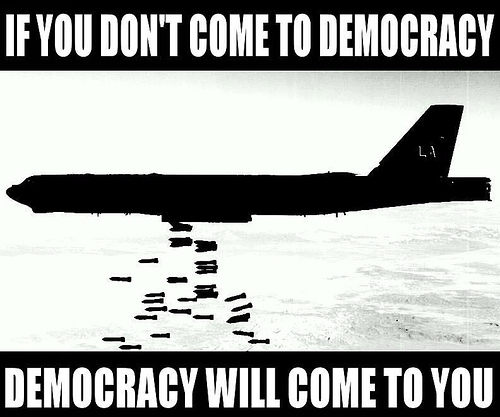
American Arrogance HasDestroyed China's Trust
Based on recent interviews by Huanqiu reporters, the bombing of the Chinese embassy, is a sensitive issue even to this day, and still causes the Chinese people to have negative feelings toward the U.S. Some Americans may not understand the Chinese people’s feelings, and some might consider this to be Chinese nationalism. Actually, it is precisely this type of serious misunderstanding that damages the U.S.’s image in the Chinese people’s eyes and prevents the U.S. and China from getting closer to each other.
Looking back at the embassy bombing ten years ago and the way the U.S. government handled the incident, we can see that summarizing this event with words like “unreasonable” and “uncivilized” are not at all excessive. Bombing an embassy is unreasonable, and the U.S.’s response after the event was even more unreasonable. The U.S. government not only ignored the opportunity to apologize right away, but after China and other countries criticized the U.S.’s behavior, the U.S. government casually understated the event as an “accidental attack” and used words like “regret,” “pity,” etc. in an attempt to prevaricate. Throughout this whole process, the Chinese people were able to feel the U.S.'s insincerity.
When facing the anger of the Chinese people, some Americans surprisingly believe that the anger is irrational; Americans “can only express regret” over this event, yet they have become the victims here - victims of Chinese nationalism. To this day, Americans do not understand that those five bombs did not just destroy the Chinese embassy, but also the hearts of the Chinese people. This directly incites the Chinese people’s powerful displeasure toward the U.S. and is responsible for the spread of the “U.S. conspiracy theory” among the Chinese.
If the embassy bombing is actually as the U.S. says it was – that is, a mistake by the military – then this mistake was definitely not by chance. This mistake originates from the same place as the U.S.’s arrogant style of diplomacy: the U.S. government’s image of itself as “The Man.” The U.S. has always been aggressive, and even if this incident was a mistake, it was not a big deal because the U.S. is “The Man.” As long as U.S. government leaders can issue some “reasonable” explanation and find a basis for their mistake, it is not their problem whether or not the victims accept their explanation. If some people are still unhappy, all the U.S. can do is “express regret.”
How can a powerful country, which does not regard other peoples’ feelings nor is even be willing to try to understand them, ever be able to develop strategies that will win the support of other nations? It is exactly this arrogant ideology of “The Man” that has caused the U.S. to make one mistake after another in its foreign and military policy. Those three Chinese journalists are not the only people who have been “accidentally hurt” by the U.S.’s military and diplomatic strategy; there are also many Iraqi and Afghan citizens who've been hurt as well. In the end, this type of diplomatic strategy will end up “accidentally hurting” the U.S., its soft power and its international image.
The U.S.’s arrogance has undermined the trust and respect that other countries have for the U.S. In the past few years, the U.S.’s ability to lead and influence others in the world has weakened considerably. After Obama took office, he tried to improve the U.S.’s image through adjustments in foreign policy. The U.S. government has been striving to show the world a more modest, courteous attitude – ready to listen attentively to the world’s concerns. However, in order to change one’s image, it is not enough to simply change one’s attitude.
The U.S. must first learn how to put itself in other people’s shoes and how to approach problems from the other side’s perspective. More importantly, the U.S. must learn how to respect and understand other people’s feelings, not just stubbornly cling to its own viewpoint. Lastly, the U.S. should not look at other countries through the eyes of “The Man.”

and why do you the chinese keep loaning “the man” loads of money so the man can keep being the man.
oh to buy your stuff with your money.
america is a failed state and bankrupt. the only thing keeping it afloat is chinese money and printed money.
capitalism has to fail, few in the world understand that simple axiom.
america is entering a stage of have nots and have mores. the very essence of capitalism is to create such a society.
the strong take advantage of the weak and proud to do so.
your money has delayed america’s coming to terms with its failed economic and political and military strategies.